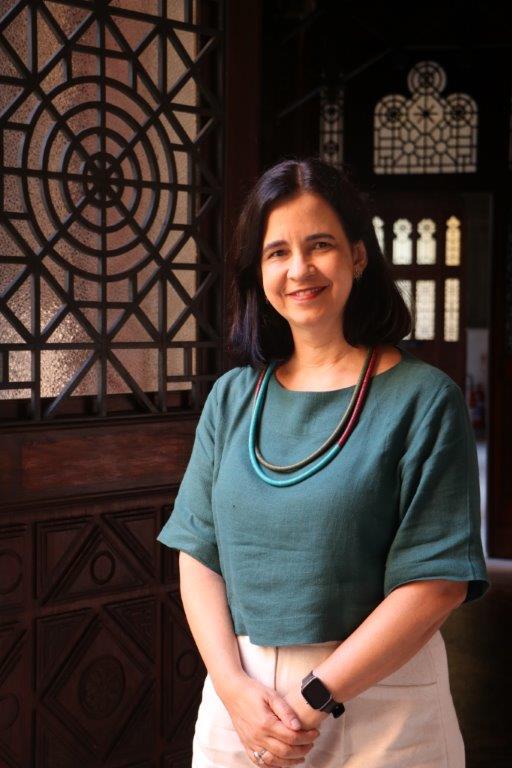With the participation of Fiocruz, Brazil and Angola strengthen cooperation ties in health
18/09/2023
Camila De'Carli (Fiocruz News Agency)
 In order to resume the historic partnership between Brazil and Angola, President Luiz Inácio Lula da Silva paid a state visit to the country with a delegation made up of members of the government and autonomous agencies, parliamentarians and businesspeople. Representing Fiocruz, the vice-president of Education, Information and Communication (VPEIC/Fiocruz), Cristiani Machado, was in Luanda from August 24 to 25 and took part in activities aimed at strengthening bilateral cooperation in the area of health.
In order to resume the historic partnership between Brazil and Angola, President Luiz Inácio Lula da Silva paid a state visit to the country with a delegation made up of members of the government and autonomous agencies, parliamentarians and businesspeople. Representing Fiocruz, the vice-president of Education, Information and Communication (VPEIC/Fiocruz), Cristiani Machado, was in Luanda from August 24 to 25 and took part in activities aimed at strengthening bilateral cooperation in the area of health.
On her first day on mission, Cristiani Machado accompanied the Ministers of Health of Brazil and Angola, Nísia Trindade Lima and Silvia Lutucuta, on visits to the "Instituto Angolano de Controle de Câncer" (Angolan Cancer Control Institute) and the "Instituto Hemoterápico Infantil" (Children's Hemotherapy Institute), two reference health units in the country. "We spoke to the directors of these units and it became very clear how important cooperation with Brazil is in training health professionals. At the Instituto Angolano de Controle do Câncer, for example, there is already very strong cooperation with Unicamp and Inca (Brazilian National Cancer Institute)," said the vice president.
On her second day in Luanda, Cristiani attended the Angola-Brazil Economic Forum, which brought together members of the governments, institutions and the private sector from both countries. The vice president was part of the panel that opened the event on Health, Education and Human Development. In her speech, she pointed out that Fiocruz has always established close and supportive relations with the nations of the Community of Portuguese-Speaking Countries, including Angola, contributing to the training of health professionals and the structuring of the Human Milk Bank Network in the country.
To an audience strongly focused on the economic debate, Cristiani pointed out in her speech the "importance of the health and education sectors for the economy. It is possible to bet on a virtuous articulation between the economy, social policy and scientific policy, in a development project oriented towards social well-being".
Another point emphasized by the vice president was the urgency of ensuring the availability of strategic supplies to meet the health needs of the population, whether by strengthening national production, strategic agreements between countries and solidarity mechanisms for bilateral or multilateral cooperation. At the end of her speech, Cristiani reinforced Fiocruz's intention to share its good practices with Angola. "Fiocruz is available to strengthen its cooperation with Angola in the areas of education for the health system - from technical education to doctoral studies - in research, in areas such as genomic surveillance, in technological development and in strategies to enable access to inputs such as vaccines and medicines, among others," she said.
The Economic Forum ended with President Luiz Inácio Lula da Silva meeting Angolan President João Manuel Gonçalves Lourenço and signing bilateral agreements. Although no partnerships directly involving Fiocruz were signed on the occasion, Cristiani Machado says that an agenda for cooperation is being built, taking into account the mutual desire to strengthen public health systems and respecting local specificities. This perspective is part of a broader strategy of structuring South-South cooperation not only with Angola, but with the African continent, especially with Portuguese-speaking countries.
"Traditionally, Fiocruz and health are important areas of this South-South cooperation. Fiocruz has always acted with a view to structuring cooperation in health and with special attention to Latin American and Portuguese-speaking African countries," said Cristiani Machado.
Regarding this structuring cooperation, the vice-president recalled that Brazil and Africa have many common challenges in the area of health - for example, tackling neglected diseases such as malaria, yellow fever and tuberculosis, or the difficulty, at different levels, of access to inputs - and that partnerships also represent an opportunity for mutual learning. "There is a dimension of solidarity and learning that has to be highlighted. This learning is not only one-sided. We are countries with a lot in common," she said.


